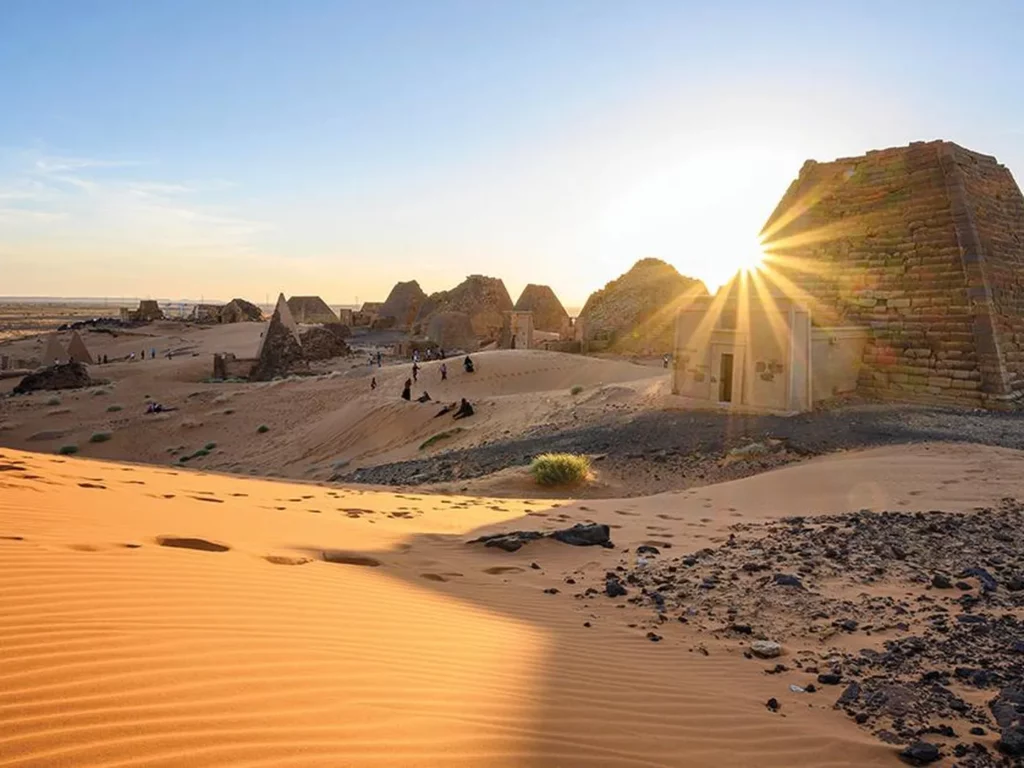
Nestled at the crossroads of Africa’s cultural and historical tapestry, Sudan’s history is a captivating narrative that spans millennia. From its ancient civilizations along the Nile to its modern struggles for self-determination, Sudan’s history is a testament to the enduring spirit of its people and the complex interplay of cultures and forces that have shaped its identity.
Ancient Marvels: The Nile Valley Civilizations
Sudan’s history can be traced back to the dawn of civilization, with evidence of settlements and advanced cultures along the banks of the Nile River. Ancient Nubia, which thrived in the northern part of modern-day Sudan, left behind remarkable monuments like the pyramids at Meroe, reminiscent of its more famous counterparts in Egypt. The Kingdom of Kush, another prominent civilization, established trade routes that connected Africa with the Mediterranean world, leaving behind a legacy of cultural exchange.
Colonial Shadows: The Era of Foreign Domination
Sudan’s history took a turn during the colonial era, as it became a battleground for imperial ambitions. The Anglo-Egyptian Condominium, established in the late 19th century, saw Sudan under joint British and Egyptian administration. This period brought about both challenges and changes, as colonial policies impacted the Sudanese society, economy, and political landscape.
Struggle for Independence: Emerging from Colonial Shadows
The mid-20th century marked a turning point in Sudan’s history, as the nation began its journey towards independence. In 1956, Sudan finally broke free from colonial rule, but this newfound freedom was accompanied by internal strife. Ethnic, religious, and regional differences played a role in shaping the nation’s early post-independence years, leading to periods of instability.
Divides and Unity: The North-South Conflict and Comprehensive Peace Agreement
One of the most defining chapters in Sudan’s history was the decades-long North-South conflict. This conflict centered on cultural, religious, and economic disparities between the predominantly Arab and Muslim north and the more ethnically diverse, non-Arab south. The Comprehensive Peace Agreement of 2005 paved the way for the eventual secession of South Sudan in 2011, a development that highlighted the challenges of maintaining a united Sudan.
Modern Challenges and the Quest for Stability
In recent years, Sudan faced challenges ranging from civil unrest to economic hardships. The Darfur conflict drew international attention to the plight of the marginalized, underscoring the urgency of addressing issues of governance, human rights, and development. In 2019, a popular uprising led to the ousting of longtime President Omar al-Bashir, marking a significant moment in Sudan’s modern history.
A New Chapter: Founding a United Sudan
The year 2023 saw Sudan enter a new chapter as it officially declared its founding as an independent nation. This momentous occasion is the result of painstaking negotiations and a commitment to forging a united identity that transcends ethnic, religious, and regional differences. Sudan’s history of resilience, diversity, and struggle serves as a foundation upon which the nation aims to build a prosperous and harmonious future.
Preserving the Legacy, Embracing the Future
As Sudan navigates its path forward, its history serves as a guidepost, reminding the nation of its rich heritage and the lessons learned from challenges overcome. The tapestry of Sudan’s history, woven with threads of ancient glory and modern resilience, is a story that continues to evolve, reflecting the aspirations of a nation determined to shape its destiny while honoring its past.
